Intro
Streamline restaurant operations with a reliable Point Of Sale System, featuring inventory management, order tracking, and payment processing, to enhance customer experience and boost sales.
The restaurant industry has undergone significant transformations over the years, with technology playing a vital role in enhancing customer experience, streamlining operations, and increasing revenue. One of the most critical components of a restaurant's technology infrastructure is the point of sale (POS) system. A restaurant point of sale system is a comprehensive software solution that enables restaurants to manage orders, process payments, and track sales, inventory, and customer data. In this article, we will delve into the world of restaurant POS systems, exploring their importance, features, benefits, and best practices for implementation.
A restaurant POS system is more than just a cash register; it is a powerful tool that helps restaurants optimize their operations, improve customer satisfaction, and drive business growth. With a POS system, restaurants can efficiently manage orders, reduce wait times, and minimize errors. Moreover, a POS system provides valuable insights into sales trends, customer behavior, and inventory levels, enabling restaurants to make informed decisions about menu engineering, marketing, and inventory management.
The importance of a restaurant POS system cannot be overstated. In today's fast-paced and competitive restaurant industry, a reliable and efficient POS system is essential for providing exceptional customer service, streamlining operations, and driving revenue growth. A POS system helps restaurants to manage orders, process payments, and track sales, inventory, and customer data, all in one place. This enables restaurants to focus on what matters most: providing an exceptional dining experience for their customers.
Key Features of a Restaurant Point of Sale System
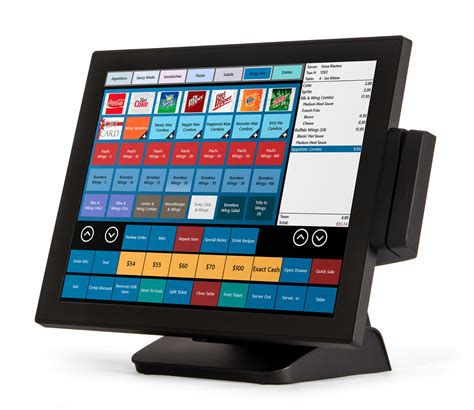
A restaurant POS system typically includes a range of features that enable restaurants to manage their operations efficiently. Some of the key features of a restaurant POS system include:
- Order management: A POS system enables restaurants to manage orders efficiently, including taking orders, managing tables, and tracking order status.
- Payment processing: A POS system allows restaurants to process payments quickly and securely, including credit card payments, mobile payments, and cash payments.
- Inventory management: A POS system helps restaurants to track inventory levels, including food, beverages, and supplies, and alerts them when items need to be reordered.
- Sales tracking: A POS system provides restaurants with real-time sales data, including sales by menu item, sales by hour, and sales by day.
- Customer management: A POS system enables restaurants to track customer data, including contact information, order history, and loyalty program information.
- Reporting and analytics: A POS system provides restaurants with detailed reports and analytics, including sales reports, inventory reports, and customer reports.
Benefits of a Restaurant Point of Sale System
A restaurant POS system offers a range of benefits, including:- Improved efficiency: A POS system streamlines restaurant operations, reducing wait times and minimizing errors.
- Increased revenue: A POS system helps restaurants to optimize their menu, pricing, and promotions, driving revenue growth.
- Enhanced customer experience: A POS system enables restaurants to provide exceptional customer service, including fast and accurate ordering, and personalized service.
- Better inventory management: A POS system helps restaurants to track inventory levels, reducing waste and minimizing stockouts.
- Improved decision-making: A POS system provides restaurants with valuable insights into sales trends, customer behavior, and inventory levels, enabling informed decisions about menu engineering, marketing, and inventory management.
How to Choose the Right Restaurant Point of Sale System
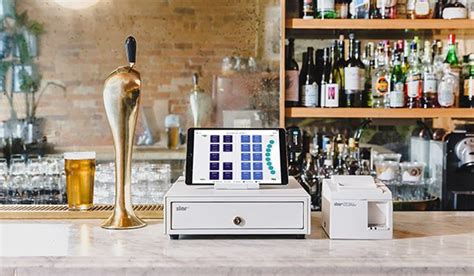
Choosing the right restaurant POS system can be a daunting task, with so many options available in the market. Here are some factors to consider when choosing a restaurant POS system:
- Ease of use: The POS system should be easy to use, with an intuitive interface that minimizes training time.
- Scalability: The POS system should be scalable, able to grow with the restaurant's business.
- Integration: The POS system should integrate with other restaurant systems, including inventory management, customer loyalty, and online ordering.
- Security: The POS system should be secure, protecting customer data and preventing fraud.
- Support: The POS system should offer reliable support, including online support, phone support, and on-site support.
- Cost: The POS system should be affordable, with a cost that fits the restaurant's budget.
Best Practices for Implementing a Restaurant Point of Sale System
Implementing a restaurant POS system requires careful planning and execution. Here are some best practices for implementing a restaurant POS system:- Define requirements: Define the restaurant's requirements, including features, functionality, and integration.
- Choose a vendor: Choose a reputable vendor, with a proven track record of delivering high-quality POS systems.
- Train staff: Train staff on the new POS system, including managers, servers, and kitchen staff.
- Test the system: Test the POS system, including functionality, integration, and security.
- Monitor performance: Monitor the POS system's performance, including sales, inventory, and customer data.
- Optimize the system: Optimize the POS system, including menu engineering, pricing, and promotions.
Common Mistakes to Avoid When Implementing a Restaurant Point of Sale System
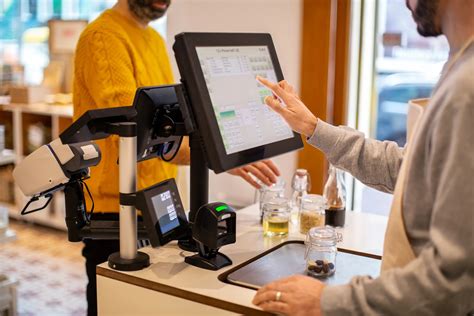
Implementing a restaurant POS system can be complex, and mistakes can be costly. Here are some common mistakes to avoid when implementing a restaurant POS system:
- Insufficient training: Insufficient training can lead to errors, frustration, and decreased productivity.
- Poor integration: Poor integration can lead to data inconsistencies, errors, and decreased efficiency.
- Inadequate support: Inadequate support can lead to downtime, errors, and decreased customer satisfaction.
- Incomplete testing: Incomplete testing can lead to errors, bugs, and decreased performance.
- Lack of customization: Lack of customization can lead to decreased efficiency, decreased productivity, and decreased customer satisfaction.
Future of Restaurant Point of Sale Systems
The future of restaurant POS systems is exciting, with emerging trends and technologies transforming the industry. Some of the emerging trends and technologies include:- Cloud-based POS systems: Cloud-based POS systems offer increased flexibility, scalability, and security.
- Mobile POS systems: Mobile POS systems offer increased mobility, flexibility, and convenience.
- Artificial intelligence: Artificial intelligence offers increased efficiency, productivity, and customer satisfaction.
- Internet of Things (IoT): IoT offers increased efficiency, productivity, and customer satisfaction.
- Blockchain: Blockchain offers increased security, transparency, and accountability.
Gallery of Restaurant Point of Sale Systems
Restaurant Point of Sale System Image Gallery
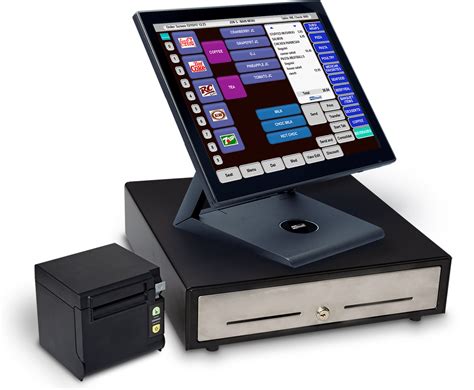
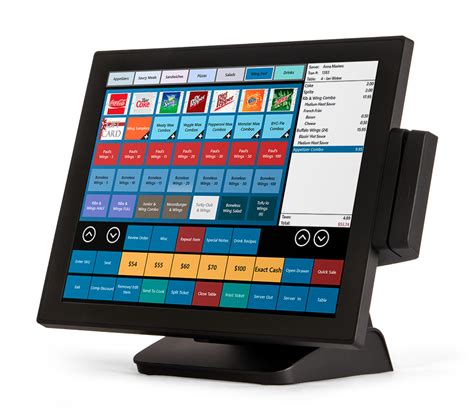
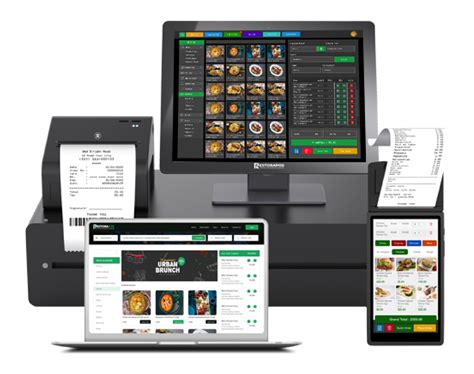
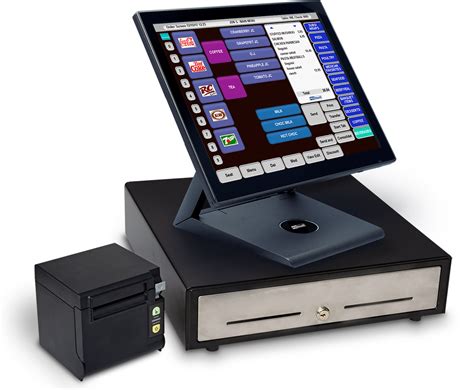
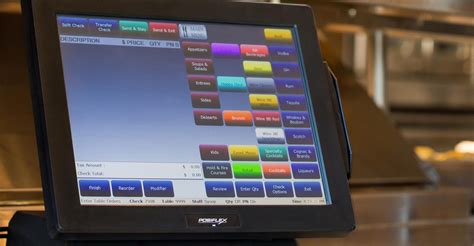
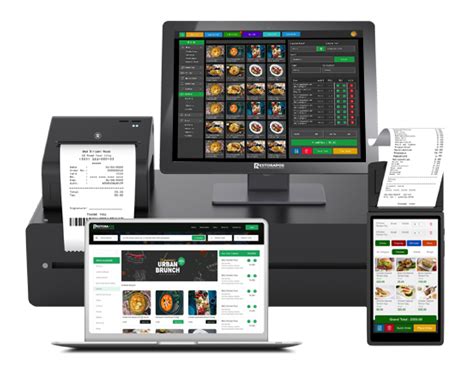
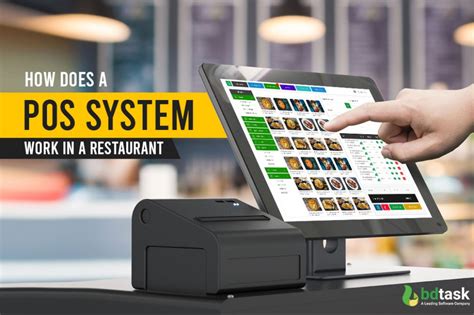
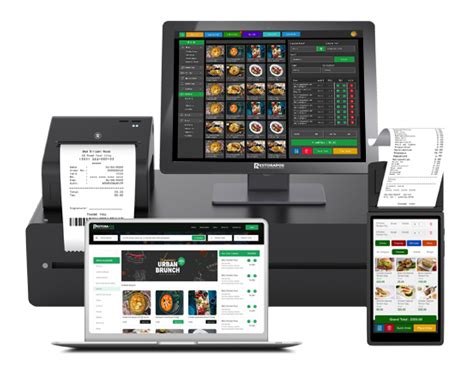
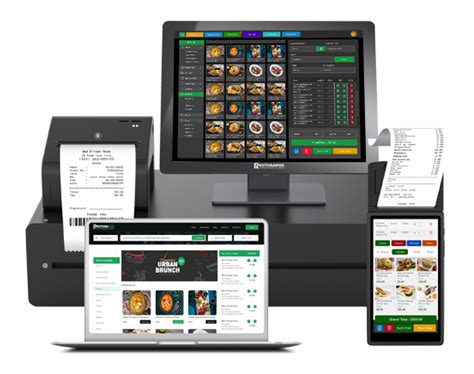
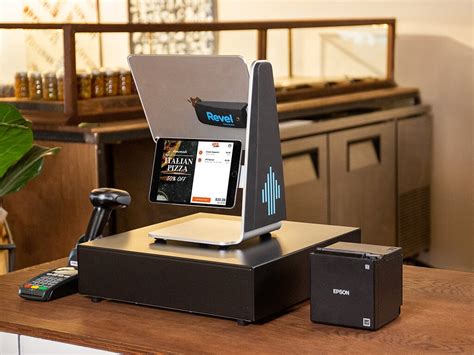
What is a restaurant point of sale system?
+A restaurant point of sale system is a comprehensive software solution that enables restaurants to manage orders, process payments, and track sales, inventory, and customer data.
What are the benefits of a restaurant point of sale system?
+The benefits of a restaurant point of sale system include improved efficiency, increased revenue, enhanced customer experience, better inventory management, and improved decision-making.
How do I choose the right restaurant point of sale system?
+When choosing a restaurant point of sale system, consider factors such as ease of use, scalability, integration, security, support, and cost.
What are the common mistakes to avoid when implementing a restaurant point of sale system?
+Common mistakes to avoid when implementing a restaurant point of sale system include insufficient training, poor integration, inadequate support, incomplete testing, and lack of customization.
What is the future of restaurant point of sale systems?
+The future of restaurant point of sale systems is exciting, with emerging trends and technologies such as cloud-based POS systems, mobile POS systems, artificial intelligence, Internet of Things (IoT), and blockchain.
In conclusion, a restaurant point of sale system is a critical component of a restaurant's technology infrastructure, enabling restaurants to manage orders, process payments, and track sales, inventory, and customer data. By understanding the importance, features, benefits, and best practices for implementing a restaurant POS system, restaurants can optimize their operations, improve customer satisfaction, and drive business growth. We invite you to share your thoughts and experiences with restaurant POS systems in the comments below. Additionally, if you found this article informative and helpful, please share it with your friends and colleagues who may benefit from learning about restaurant POS systems.
